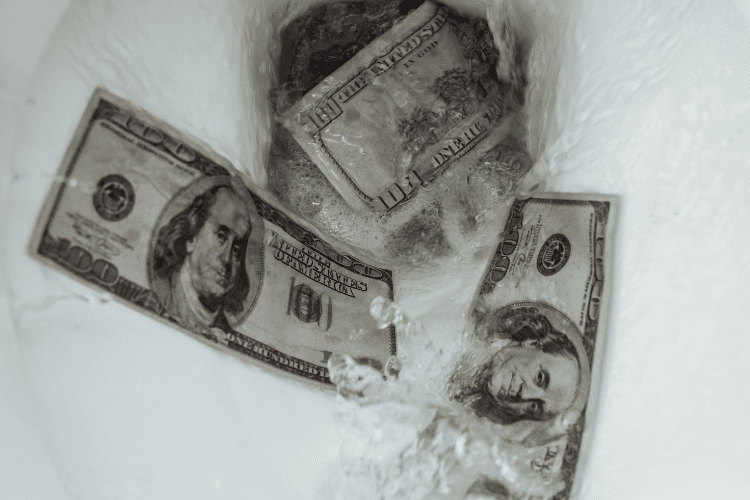What Is Inflation and How Does It Impact Your Money?

We’ve all heard parents and grandparents share stories of spending the entire day at an amusement park for just a dollar or buying a loaf of bread for just a quarter. We’ll never know those “good old days” for ourselves, and we have inflation to thank.
If you feel like it’s been costing more and more to get a haircut or fill your gas tank, it’s not your imagination – it’s inflation.
What exactly is this ugly “I-word,” and what does it mean for your bank account?
What Is Inflation?
Inflation occurs when the price of goods and services rises, leading to a decrease in the value of money. To get technical, the inflation rate is the percentage increase in prices over one year. The Consumer Price Index increased 6.4% from January 2022 to January 2023, which means that every dollar in your account at the start of 2022 was only worth 93.6 cents at the start of 2023.
What Causes Inflation?
The economy is a complex beast, but inflation generally occurs as a result of three different causes:
- high demand for all goods and services
- increasing costs of producing all goods and services
- the expectation that goods and services (including your paycheck) will increase
When demand for goods and services increases, economists call this “demand-pull inflation.” For example, this happens when goods or services become scarce or the demand for a good increases beyond the ability of suppliers to satisfy demand. If sushi becomes a fad, but fishers aren’t catching more fish, the cost of fish goes up. Or if oil-producing countries decide to cut oil production, but demand is still high, the price goes up.
Increasing costs produce cost-push inflation. One of the main reasons costs go up is because of input increases in cost. The cost of labor is one of those inputs, so if all the taxi drivers in the world demand to be paid twice as much, the cost of taxi rides will go up.
Sometimes both these effects happen together – higher prices for a good like gasoline cause workers to demand more money from their employers. This creates an inflationary cycle like the kind the U.S. saw in the 1970s.
Some economists, like the Nobel Prize-winning Milton Friedman, say that inflation is due to the amount of money in the economy. This school of thought is called monetarism, and its students think inflation is caused when the government prints too much money and can be tamed when the government takes money out of circulation (for example, by raising interest rates).
What Does it Mean to Me?
President Ronald Reagan didn’t waste time sharing his interpretation of this economic issue: “Inflation is as violent as a mugger, as frightening as an armed robber, and as deadly as a hitman.”
That is to say, inflation makes the money you save today less valuable tomorrow or next year, or during retirement. This erodes your purchasing power and makes your groceries, gas, and rent harder to afford – especially if you’re on a fixed income like Social Security.
Beyond the day-to-day strain inflation puts on average Americans, and there are also long-term effects to consider. Say you earn 5% on investments over the next 30 years. That sounds great, but an inflation rate of 3% during that period means you really only earned 2% on your investment.
Unfortunately, inflation is a fact of life. There’s no way to predict precisely how inflation will behave over your lifetime, so you need to be prepared. Invest your savings for a better return than you can get in a money market or fixed-rate savings account. Treasury Inflation-Protected Securities (TIPS), stocks, and mutual funds are all viable options.
It’s possible to protect your purchasing power with low-to-moderate-risk investments over time. With the right financial strategies, you can avoid having inflation steal your hard-earned savings.
Read about micro-investing and how to get started with our complete guide: Micro-Investing: What It Is, Why It’s for You and How to Start.










